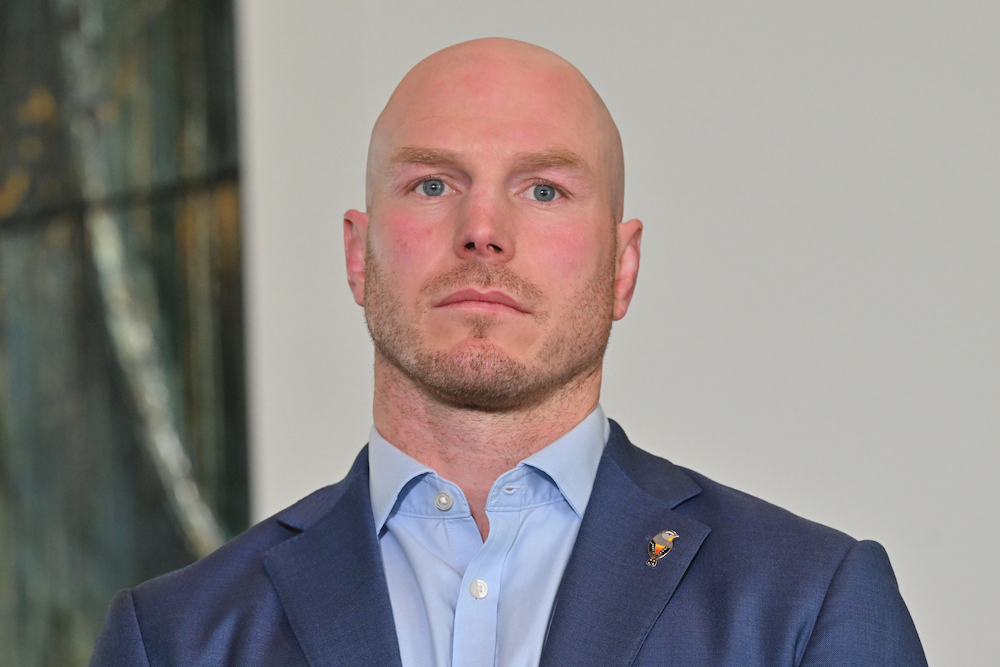David Pocock is independent Senator for the ACT.
Housing is the debate Australians have been begging their elected representatives to have. It is the single biggest issue Canberrans raise with me.
Housing unaffordability has reached such extremes in this country, including here in the nation’s capital, that it has cost many people more than money, it’s costing them hope.
For young people in particular, there is a growing sense of despair that even if they work hard and save, they stand no chance of ever owning a home if they don’t have wealthy parents who can help.
Faced with record levels of debt for getting a tertiary education and having to pay for previous inaction on climate change, this completes a pretty depressing trifecta that says it sucks to be young in the lucky country.
And it’s not just our young – the housing crisis hurts everyone: older women, the fastest growing cohort of homeless people, single parents, people on welfare or with disability, working families… The pain is felt across our community.
But, with enough political courage, we can turn this around.
Media reports that the government has commissioned modelling on options to reform generous property tax concessions are very welcome.
This is work Senator Jacqui Lambie and I had done by the Parliamentary Budget Office earlier this year.
We wanted to show there is a middle path of sensible reform the government can walk that protects people who have made legitimate investments under current settings, but also uses our tax system to incentivise increased housing supply and first home ownership.
Our preferred option to limit capital gains tax discounts to new dwellings and negative gearing to one property wouldn’t impact the vast majority of Canberrans (69 per cent) who only have one investment property.
It’s time for Labor to move beyond the political trauma of past election defeats, listen to the electorate, and give people a reason to vote for them at the next election. An ambitious plan to end the housing crisis would be a pretty good start.
More than that, it sends a signal that they are treating the housing crisis with the urgency and policy ambition it deserves. This has to be paired with an honest conversation around migration so we strike the right settings between getting the skills we need, aligning population with housing supply and how big we want Australia to be.
We can reform negative gearing and capital gains tax to bring on the new housing supply all the experts say we so desperately need. The budget dividend from such reform also gives government the opportunity to spend at least triple what it currently is on social and affordable housing under the Housing Australia Future Fund.
Here in the ACT the stock of affordable rentals and public housing has dwindled as the waitlist for social housing continues to grow. We have the highest rate of persistent homelessness in the country.
Which is why housing has been such a focus for me since being elected. My private senator’s bill to legislate a 10-year national strategy for housing and homelessness and enshrine a right to housing is working its way through the senate committee process. That bill, supported by over 100 prominent industry and advocacy figures, was jointly introduced to both houses of Parliament in June by Kylea Tink MP and myself, and is currently under scrutiny by a Senate Inquiry. Given its aim to lock in a national housing policy leadership role for the federal government, why wouldn’t a reforming Labor government support it?
In some rare good news for our city, the ACT was strongly overrepresented in the first round of successful applications under the HAFF just announced.
Of the 13,700 new homes to be built under this initial funding round, 757 will be in ACT. For hard-pressed households, gaining HAFF-funded tenancies will mean a secure and modern home at an affordable cost.
After an almost entirely barren decade for social and affordable housing investment, all of this gives us something to celebrate. I was proud to help resolve a 2023 Senate impasse that threatened to kill the program before it was even born.
Equally, when we look at the huge scale of today’s housing crisis, the entire HAFF program represents only an extremely modest and, we hope, initial step towards easing the situation. 2021 census analysis shows that households experiencing unmet need for social or affordable rental housing total 640,000.
To make serious inroads in tackling this challenge we need to reverse decades of decline in Australia’s stock of social and affordable rental housing through a greatly expanded and sustained investment push. While a boosted HAFF program should be expected to carry most of this, state and territory governments will need to share the load.
But the housing crisis is a multi-dimensional problem, and only by pulling every available policy lever are we going to be able to get on top of it. That’s why I’ve also pushed for the Senate to support two government housing bills currently before the parliament, one aimed at boosting market rental housing development and one providing a leg-up for aspiring first home buyers.
Both bills are relatively modest in their objectives, and could go further, which is why, with crossbench colleagues, I’m constructively lobbying for detailed improvements.
Only through a wide-ranging policy re-set, through changes that include tax and regulatory reform as well as boosted public investment, can we decisively shift course towards the better housing future Australia so badly needs.



